Don't wanna be here? Send us removal request.
Text
Reading your post made me think about how much these shows make us look at ourselves in ways we don’t usually stop to consider. I definitely get what you’re saying about Sailor Moon feeling nostalgic but also real. There’s something about seeing a character like Usagi, who is messy and emotional but still strong in her own way, that feels comforting. It makes me think of how, even when life feels overwhelming, it’s okay to not always have everything together. I like how you tied that into Butler’s idea of identity and performance because it’s true, we all play roles without realizing it. Your take on Aggretsuko hit me because I feel like a lot of girls our age can already sense that pressure to “fit in” with work or relationships, even before we’re fully in that stage of life. Retsuko’s way of holding in her frustration and letting it out in private feels so real. Wandering Son stood out too because it makes you think about how early we start getting pushed into certain boxes with gender or identity. I agree with you, these shows all connect because they make you question what being yourself really means in a world that wants you to perform. Good job!!
Sailor Moon, Aggretsuko, and Wandering Son

Watching these three anime I began to seriously see how gender and gender performance is a part of my everyday life. In Sailor Moon I recognized how, as a young female, I can relate to Usagi, who loves jewelry and cries a little more than most people. I enjoyed seeing this hyper-femininity in a good light, not criticized but featured as a highlight of her character. It is refreshing to see media that doesn't make fun of young girls and instead makes them super warriors. I found the beginning of Aggretsuko hilarious, from Retsuko being excited to start a new job and immediately hurting herself and hating her job. I found the concept with animals interesting, as it was a new way to view how gender is perceived through clothing and mannerisms. Wandering Son is an outlier in this group. While Sailor Moon and Aggretsuko are comical and lighthearted, Wandering Son offers a truthful story of young people discovering their identity, even going against what they have learned and undergoing scrutiny to feel comfortable. Nitori’s story reveals the mental battle those who don’t identify with what is considered “normal” go through in wanting to be themselves. Overall, these anime give me new perspectives on the construct of gender and how it affects nearly everything.
Sailor Moon felt nostalgic, like watching a cartoon from when I was younger. I love how Usagi’s personality, however unheroic it seems, became the source of her power, unaltered and genuine. I like how the article by Newsom points out that femininity is a super power in the show. Normally the media presents crying or being overly emotional as a weak trait. Sailor Moon insists otherwise. I think this media is a good step towards making femininity more acceptable in both girls and boys. I think the show challenges the idea that girls can not be “tough.” Saving her town and friends from monsters while balancing school and makeup proves that girls can navigate both being strong and showcase femininity if that is what they wish to do. As a girl, I find the show inspiring. I think it reflects the global pressures girls face in balancing social life, academic expectations, and responsibilities. These pressures often hit girls at a young age, forcing them to grow up quickly. Luna pushing Usagi to fight monsters and save her community, reminds me of these pressures. Seen in Japan and the entire globe, the pressures young girls face from society and their families is unmatched. I like how Sailor Moon allows Usagi to act grown up, through her battles, but allows her to return to her younger self after, like a relief from adult pressures. When contemplating Butler’s theory I think Usagi performs her identity constantly, even though she performs two identities: one of a “normal” young girl and one of a magic girl. She is sincere in both performances, making me question if everyone performs their gender with sincerity. I assume they don't, but it leaves me wondering.
I find it funny how close to home Aggretsuko hits. The struggle to keep her composure at work and her secret death metal karaoke from her friends reminds me of how I have a different outward personality in front of others than I do in private or around close friends. I think the global issue that is seen in this anime is the passive-aggressive atmosphere apparent in Retsuko’s workplace. The gender norms of the office are clear, as Retsuko is expected to quietly endure the hostile environment and serve tea to her boss with a smile. The sad truth is that this is a reality for women in many cultures, as well as Japan. I also can relate to Season 2 Retsuko who navigates a potential marriage situation, but doesn't feel ready to commit. It is hard to give yourself entirely to one person, and feeling tied down is an enormous amount of pressure. To make things worse, when parents are involved it can become an even more sensitive topic. It is clear Retsuko’s mother would like her to “settle down,” an old expectation for women to get married and start families before they are “too old.” The tension between Retsuko and her mother reminds me of tension some of my family has because of different views, often due to generational differences in societal norms. I think the main issue in Aggretsuko is how women navigate patriarchal corporate systems. From a global perspective, women are expected to just live with unjust societal norms that put increasing pressure on how they behave in every aspect of their lives. I also think the idea of gender performativity is prevalent in this anime, as Butler’s ideas explain how Retsuko’s cute and obedient demeanor is merely a conditioned survival method to allow her to fit into society. Retsuko’s true self only comes out in the karaoke booth, when no one is watching, which I’m afraid many women can relate to.
Finally, the touching story of Wandering Son depicts young children delicately navigating gender identity. Even though I can’t personally relate to Nitori and Takatsuki, the show captures your attention through displaying the awkwardness of growing up in a body that doesn’t feel like your true self. Even those who can’t relate to Nitori’s exact struggles can still understand feelings of not belonging, making the show impactful for all viewers. I especially like how the show quietly allows viewers to experience the characters’ lives. There is no loud message about acceptance or changing society, the show chooses to display its message simply through telling Nitori’s and her friends’ stories and forcing viewers to feel. Honestly, this is why I loved the show's take on trans lives, as it makes it understandable, even to someone who knows nothing about that lifestyle. I think it is clear that Japan’s strict gender roles are an issue discussed in the anime. School uniforms intended to enforce these roles are a major point in the series, with the children changing uniforms to feel more comfortable. The classroom setting that allows students to experiment with gender-bent plays is also something I find uniquely Japanese. The shame of feeling like you don’t belong in the role society places you in, however, is a universal issue experienced in many societies. Young people all over experience immense pressure and stress trying to fit into a society that was crafted for limited types of people. Butler’s theory is probably most relevant in this series, as all characters actively perform gender, through obeying societal expectations or completely going against and resisting them. There are many active performances characters put on in discovering how they feel about gender. Specifically, Takatsuki’s struggle to display femininity makes me wonder if I was only taught the behaviors I casually do now to be a “proper” girl, or if this is a choice I make myself to fit in, or if this is how I want to act. I think the most drastic aspect of Wandering Son is that it forces audiences to realize how young struggles with identity, specifically gender identity, can occur and how society should create more paths for children to comfortably discover who they are without judgement or persecution.
Overall all these three shows depict gender in their own way, but always as a way to become one’s true self despite oppression. These anime made me realize the struggles many have gone through regarding questioning identity and how gender is perceived, giving me insight on how my gender may affect me in later years when I enter the workforce. I am glad I was able to watch and learn from these works, to understand better my own self and those around me.
1 note
·
View note
Text
Sailor Moon, Aggretsuko, and Wandering Son
All of these anime were really different from each other but they all connected through the topics of feminism and gender which I think is the main message they were trying to show. Each one had its own take on what it means to be a woman or how gender and identity are seen, and I honestly felt like a lot of it related to things I’ve noticed in real life too.
Starting with Sailor Moon, this one felt the most traditional when it comes to how girls and boys are shown. But at the same time it shows girl power and makes femininity feel strong. Like the girls cry and wear jewelry and skirts but still save the world. That’s really cool. But something that stood out to me was how when they transform and get powerful, they also get more “sexy” looking. That part made me feel weird. I get that it’s supposed to be empowering but to me it sends the message that to be powerful you also have to show off your body. And the thing is they’re only 14 if they were in college or end of high school I would be all for it. I was that age not too long ago in all glitter justice outfits and when I watched shows like that I would compare my body to theirs or feel like I had to look like that to be strong or pretty. So it kind of messes with your head even if the show is supposed to be positive.
Then Aggretsuko felt more realistic but also frustrating. The main character is a panda but she’s basically just a regular office worker who has to smile and act feminine all day even though inside she’s angry and stressed. She can’t be her true self at work so she lets it out in secret by singing death metal at karaoke. That made me think about how women are expected to act a certain way and hide how they really feel. It’s like you can be whoever you want to be but only at home or when no one is watching. It also shows how society expects women to just work until they get married or have kids like that’s the only path.
Wandering Son was definitely the most emotional and probably the most real when it comes to gender identity. It shows characters who are figuring out who they are and how they want to present themselves but it’s not easy for them. The main characters want to dress and live differently from how they were born but they’re still learning what that means. One thing that stood out was how the anime showed that it was more accepted to play a gender role on stage than in real life. That made me think about drag queens and how people are cool with it when it’s a performance but not always when it’s real life. Like you can act a certain way for entertainment but the second you live that way it becomes a problem for some people. The anime shows how confusing and hard that can be especially when family doesn’t support it.
Overall I think all three anime said something about how gender and identity are not simple and how people are still trying to figure out how to be themselves in a world that doesn’t always make that easy. Whether it’s being a magical girl, a stressed out office worker, or a kid trying to understand who they are, all of these characters are dealing with real stuff. I liked how each show made me think about the world differently and honestly I felt connected to parts of all of them in my own way.
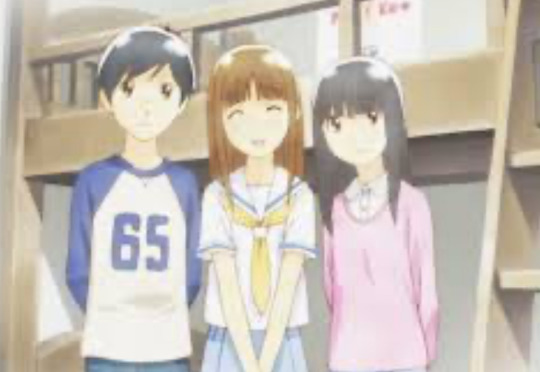
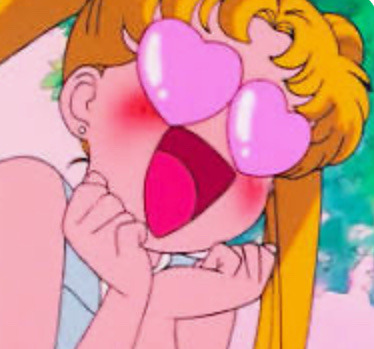

1 note
·
View note
Text
This was really cool to read. I’ve been to the Dallas Fan Expo before, but your experience at SakuraCon gave me a different perspective on what these events can be. The way you described the cosplay, panels, and just the overall vibe made it feel more personal and meaningful. I’ve seen how much effort people put into their cosplays, but I never really thought about how much of it is tied to identity and self-expression until now. The karaoke part especially stood out to me. I’ve seen moments like that where strangers just connect over shared interests and it’s honestly one of the best parts of being in a fandom space. It’s not something you really get anywhere else. I also liked how you talked about the gift economy and the conversations you had with artists. That’s something I didn’t really get to experience at Fan Expo, but it sounds like it made the whole thing feel more genuine and community-driven.You wrote about all of it in such a thoughtful and relatable way. It made me think about the events I’ve gone to differently and now I kinda want to go to more just for the people and the energy.
Finding Community Under the Neon Lights: My First Anime Convention Experience
Last spring, I stepped into the bustling lobby of SakuraCon in Seattle, my heart pounding with equal parts excitement and nerves. As a longtime anime fan who had only ever connected with others through Discord servers and livestream watch parties, this was my first real-life plunge into fandom culture. From the moment I swiped my badge and passed under the glowing banner, I felt transported into a vibrant microcosm where creativity, identity, and community converged.

Cosplay as Creative Expression
Wandering into the main hall, I was swept up by a river of cosplayers flaunting everything from meticulously tailored Sailor Moon outfits to towering Gundam armor. I would later learn that cosplay is more than dress-up—it’s a form of participatory storytelling, a way to embody characters who have shaped our imaginations. Watching a group of Ichigo Kurosaki cosplayers reenact dramatic battle poses, I realized how fans negotiate personal identity through performance. It reminded me of our class discussions on postmodern youth culture, where boundaries between producer and consumer blur, and identity becomes a canvas for experimentation.
Panels and Workshops: Spaces of Learning
The convention schedule offered more than photo ops. I attended a workshop on digital art techniques taught by a professional mangaka, where I sketched along on a borrowed tablet. In a panel on “Gender and Fandom,” speakers shared research on how anime communities can foster safe spaces for LGBTQ+ fans—echoing Wandering Son’s gentle advocacy for self-expression. These sessions were a far cry from passive viewing; they were interactive laboratories where knowledge, skill, and empathy circulated freely among attendees.
The Marketplace and the Gift Economy
Art Alley was another highlight: a dense maze of tables showcasing doujinshi, prints, and handcrafted accessories. I spent hours chatting with artists about their creative processes, trading stickers in exchange for zines. This exchange felt distinctly different from a commercial transaction—it was part of a “gift economy,” where value lies in shared passion rather than profit. I left with a small commission print of my favorite waifu character, paid not in dollars alone but in conversations and genuine encouragement.
Finding Belonging
Perhaps the most powerful moment came during a late-night karaoke gathering. Dozens of strangers—cosplayers, casual fans, and industry guests—packed into a hotel conference room to belt out opening themes from Naruto and Attack on Titan. The lyrics scratched out in shaky English on projector screens, we sang together with unwavering enthusiasm. In those echoing refrains, I felt a profound sense of belonging: here was a community that celebrated difference and embraced vulnerability.
Reflections on Identity and Youth Culture
Reflecting on my convention experience, I see clear parallels to our course themes on cultural identity formation. Anime conventions are postmodern arenas where youth culture escapes the constraints of mainstream norms. Fandom becomes a vehicle for exploring gender, creativity, and social connection. For me, donning a simple sailor fuku and sharing a laugh with fellow admirers was a declaration that it’s okay to be passionate, quirky, and unapologetically invested in fictional worlds.
Looking Ahead
My first convention taught me that fan gatherings are more than entertainment—they are crucibles of community, creativity, and self-discovery. As I prepare for the final essay, I plan to argue that anime conventions exemplify participatory culture’s potential to reshape how young people construct identities in the digital age. These spaces remind us that, whether online or in crowded halls, fandom thrives on collaboration, empathy, and the shared joy of imaginative play.
In the neon glow of SakuraCon, I didn’t just witness fan culture—I became part of it.
1 note
·
View note
Text
Convention: Dallas Fan Expo
This year I went to the Dallas Fan Expo and it was such an awesome experience. I’ve been before, but this time felt different, probably because of the anime we watched in class, especially Genshiken. That show helped me look at conventions in a new way. It’s not just about walking around, taking pictures, or buying merch. It’s about the people, the energy, and how being part of a fandom can actually mean something deeper. Watching Genshiken gave me a whole new appreciation for everything I saw at the convention this year.
First off, the Dallas Fan Expo is huge. In past years, more than 100,000 people have shown up, and you can feel that just from walking around. There’s something for literally everyone. Whether you’re into anime, Marvel, horror, video games, or anything else, you’ll find a space that fits you. They have everything from celebrity photo ops and Q&As to artist booths, panels, and cosplay contests. I went with my family and found myself getting excited every time I saw something familiar from class. It was actually kind of fun being the one who could point out anime characters and explain what they were from.
What really made me think of Genshiken was the way everyone was just being themselves. In the anime, the club members don’t always fit in with the rest of the world, but when they’re together, they’re comfortable. The same thing was happening all around me at Fan Expo. People were cosplaying, buying merch, laughing, and taking pictures without worrying about what anyone thought. No one cared if you were into something really niche or super mainstream. Everyone just respected that you were passionate about something, and that’s all that mattered.
There were a ton of anime cosplayers this year, which was one of my favorite parts. I saw characters from shows we watched in class, like A Silent Voice, and there were a lot of people dressed as Naruto characters. I didn’t expect that since Naruto has been around for a while, but it reminded me how long-lasting that fandom is. I saw so many people dressed as Kakashi, Itachi, and even little kids in full Naruto outfits. It brought me back to how Genshiken talks about what’s considered popular versus underground, but at the convention, none of that really matters. People are just celebrating what they love.
Last year when I went, I got a photo with McKenna Grace who has been in so many fan-favorite movies and shows. This year, I got to see some of the original cast from Jaws, which was pretty cool. Even though that’s a completely different kind of fandom, it still gave off the same kind of excitement. People were lining up to meet them, holding old DVDs and posters, and you could tell how much it meant to them. That kind of passion really reminded me of the Genshiken club members and how seriously they took their interests, even if other people didn’t always get it.
One of the best parts of the whole experience was just how welcoming the atmosphere was. No one was judging anyone for being too into something or dressing up. In fact, people were hyping each other up, complimenting costumes, asking for selfies, and even trading little gifts. It felt like a place where everyone belonged. That’s something Genshiken really focused on too. The characters were all different, but when they were together, it felt like home for them. That’s how Fan Expo felt for me. Like I could fully enjoy what I liked without holding back.
I also realized how much anime has taught me about people and connection. Watching shows like Genshiken, Naruto, and A Silent Voice made me more aware of how much stories can bring people together. Whether it’s a ninja trying to be acknowledged or a quiet girl trying to be understood, we relate to these characters and carry their stories with us. Seeing other people do the same at a place like Fan Expo made me feel like I was part of something bigger.
I would definitely recommend going to the Dallas Fan Expo. Even if you’re not super into anime or any one fandom, just being there is fun. There’s so much to see and do, and you never know who you’ll run into. It’s one of the few places where everyone’s excitement is genuine and shared. After going this year, I’m already planning to go back. It’s a place where being a fan feels normal, and honestly, I think we all need more of that.


0 notes
Text
Genshiken
This anime felt really different from anything we’ve looked at so far. It was more like someone’s personal story instead of just a regular show. I actually liked that because it felt more real and relatable. Even though I’m new to anime, I still connected with it in a way I didn’t expect.
For some reason, I saw myself in it through the lens of sports and superheroes. Growing up, I watched a bunch of Marvel and DC movies with my dad and was always really into sports. But I also liked girly stuff like the color pink, and that kind of made it hard to fit in. I wasn’t really taken seriously because I didn’t match what people thought someone who played sports should be like. I’ve always felt like I was floating in the middle of different worlds. Not quite one or the other.
Watching Genshiken reminded me of that. The main character, Sasahara, is trying to figure out if he should join the manga club, and he hesitates. That hit me. It brought me back to being a kid and wanting to play sports with the boys but being told it was a boy thing. I felt embarrassed and out of place. Sasahara clearly wanted to be part of the club, but he didn’t know if he’d be accepted. I’ve felt that exact same way before.
Another part I liked was the character Saki. She doesn’t even like anime but ends up being around the club because of her boyfriend. At first, she judges everyone a little, but over time she starts to understand them more. That kind of felt like me watching the show. I’m just now learning about anime, but seeing how passionate they were about what they loved made me respect it more. Everyone deserves to have a space where they can just be themselves.
Something that stood out to me too was how Genshiken shows these people just existing and being into what they’re into without apologizing. In Japanese culture, being an otaku can come with a lot of judgment. But honestly, that kind of judgment happens here too. Being blonde-haired and blue-eyed, liking sports and pink, I never felt like I fit the mold either. People had a hard time putting me into one box. That’s why I related to this so much. It’s not just a Japanese thing. It’s a people thing.
When I went to the Austin Comic Con, I remember feeling this same sense of community. Everyone was excited and fully themselves and no one cared if you looked the part or not. That’s what the club in Genshiken felt like to me. A safe space for weirdness, passion, and honesty.
Even though I didn’t expect to like this anime, I really did. It reminded me that you don’t have to fit in perfectly to belong somewhere. Sometimes you just have to find your own kind of people.
This anime felt really different from anything we’ve looked at so far. It was more like someone’s personal story instead of just a regular show. I actually liked that because it felt more real and relatable. Even though I’m not really into anime, I still connected with it in a way I didn’t expect.
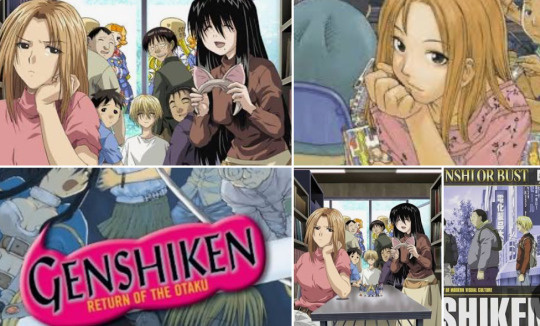
0 notes
Text
I really liked what you wrote it felt super honest and easy to relate to. Even though I’m not into anime, I totally get what you mean about feeling like you’re on the outside of a fandom or worried about being judged for what you like. That kind of hesitation is so real, especially when you’re passionate about something but don’t feel like you fully “qualify” to be part of the group. For me, it’s been kind of similar in other areas. I’m blonde-haired and blue-eyed, and I’ve had moments where people made assumptions about what I should or shouldn’t be into. That alone can make you second-guess whether it’s even worth sharing what you enjoy. So reading your thoughts about people growing more confident in themselves through fandom really stuck with me I’ve felt that in different ways. I also thought it was interesting how you pointed out how American fans are portrayed. It’s funny but also kind of true how there are these exaggerated stereotypes. Sometimes it feels like if you don’t match what a “true fan” is supposed to look like, you’re just kind of dismissed. I am the same way when it comes to I’m not enough of an anime fan to be considered an otaku, but I agree that I can relate to the sense of it with Marvel. I grew up with my dad always watching superhero movies and because it was such a big part of our relationship I always thought it was cool until I went to school and was told superheroes are for boys. So I understand when you say you were scared to express your liking for the movies.
Genshiken

While I am not enough of an anime fan to be considered an “otaku,” I did thoroughly enjoy watching this series. This show allowed me to experience how die-hard fans of manga, anime, and dōjinshi view everyday life, as well as themselves. I especially enjoyed watching how some of the members of Genshiken slowly grow from being embarrassed to show what they loved to being comfortable throughout the series. I think the characters are realistic in many ways, from their relationships to their uncertainties and self-consciousness. Sasahara is one of my favorites, as he starts off unsure whether or not to join the club (unlike Kousaka), but gets increasingly involved with activities and finds true friends. It was particularly interesting to see what Japan’s fandoms look like, through the convention known as ComiFest, and how Japan perceives American fans. I honestly find it hilarious that Americans are perceived as blonde-haired, blue-eyed, and incredibly annoying, which may have more than a little truth to it.
It is clear that there are some issues addressed in the anime relevant to Japan. The most obvious one is how obsessed fans, or otaku, are viewed by other members of society. This is evident in both how the characters talk about themselves or each other, but it is most clear through the perspective of Kasukabe. As the only member of the club who isn’t an otaku, her reactions to how members act serve as the “outside” perspective of these fans. While initially Kasukabe is disturbed by the members and their habits, she eventually becomes a part of the club and dates a member. This aspect of the show proves that, although the slightly awkward, socially withdrawn characters might not be considered the model for youth in Japan, they are not bad people like some think. Even if they stray from the social norm, otaku are painted as complex characters who battle both outside assumptions and their own insecurities in the show. While the show depicts this phenomenon in Japan, where there is more distaste for otaku, there is global relevance to the show. Anyone can lose themselves to fandom, but it is more accepted in western cultures. I personally don’t think these obsessions should be your entire identity, but I see nothing wrong with being engrossed in pop culture. If a certain fandom allows you to be unapologetically yourself, then I think you have the duty to be involved.
In my own life, I can relate to this anime quite a bit. The show doesn't glorify or ridicule fandoms, instead, it shows the good and the bad, the joy and the awkwardness. I think I have felt scared to show my real interest because of fear of being judged by those around me. When I was younger, I really liked Marvel and the Avengers. I was afraid to really express this interest, however, because I thought I would be seen as weird by others. This I feel is similar to Ogiue, who initially hides her interests of yaoi for fear of being mocked. In my life, I was able to overcome this fear by finding people who shared my fascinations. Through social media, fan pages, and fan fiction, I was able to enjoy my passions. In the series, Ogiue remains shy, but accepts her interests and indulges in them. She even sells her own dōjinshi, showing that she is comfortable with herself at last. I think the anime does a great job of showing that fandom culture isn’t something that should be avoided, and gives me confidence to be honest with my own interests in real life.
I believe the anime represents the best and the most embarrassing parts of otaku culture and does so in a way that reflects aspects of Fiske’s The Cultural Economy of Fandom. This is seen multiple times in many different ways during the show. Creating dōjinshi for ComiFest, making costumes for cosplay, and discussing meaning behind their fascinations is what brings the characters joy and illustrates them actively consuming their entertainment. Not only do characters consume mass quantities of manga, anime, and other pop culture materials, they expand on it, making it their own. This is probably my favorite quality of the show because, despite being ashamed at times for what they like, characters work hard to create something new from the existing, which also reflects the ideas from Azuma’s article, Otaku: Japan’s Database Animals. In my opinion, this also goes against the ideas outsiders have of otaku. The characters in the show may be a bit shy, but when it comes to the things they love, they are open with members of the club, proving that a safe space can mean everything. From watching this show, it seems the sense of community within Genshiken is closer and more authentic than most of the other communities I have seen in real life, heavily contrasting the idea that these individuals are recluses. Instead, I see otaku and the characters we see in Genshiken as motivated and passionate people who have all my respect.
1 note
·
View note
Text
Naruto, Wolf Children, and A Silent Voice
I really enjoyed all three anime because I could connect each one to cultural and personal experiences that really stuck with me.
For Naruto, I saw a strong connection to the term code-switching not just in the modern sense, but as something people have done for a long time to survive or fit into society. Naruto is treated like an outsider because of the Nine-Tails sealed inside him. He carries a stigma that isn’t his fault, but he still works hard to prove himself to the people around him. That reminded me of how groups throughout history have been forced to change or hide parts of who they are just to be accepted. Naruto doesn’t completely hide who he is, but he internalizes that judgment and pushes himself to become someone the world sees as worthy, which shows how identity can be shaped by pressure from society.
Wolf Children made me think about people caught between two cultures or identities. Hana’s children are both wolf and human, and they have to figure out who they really are and how they want to live. It reminded me of a FAFSA story I once saw about an immigrant family who felt disconnected from their roots but found strength through their family. I also thought back to when I was in elementary school, and we had international potlucks. Even if someone didn’t love the food, we were told to write something good about each dish, and it helped us learn not to use words like “weird” for different cultures. That small experience really taught me the value of respect and curiosity, and I think Wolf Children shows that too how understanding difference starts early.
A Silent Voice was the one I connected with personally the most. My brother is nonverbal autistic, and we’re used to stares and awkward questions when we take him places. But over time, we’ve found that when people actually take the time to see his talents, they connect with him in a real way. In the movie, Shōya has to face how deeply he hurt Shōko, and how silence and judgment can affect someone for years. It reminded me that people who’ve been hurt remember both the cruelty and the kindness, and sometimes it really is possible to make things right, even after a long time.
Also this is random but my siblings have been watching all the Disney Zombie movies so I thought this was cool that it sums up all the anime’s. The zombies in Seabrook are treated like outsiders and are forced to act a certain way just to be accepted just like Naruto, and even like Ame and Yuki in Wolf Children. Zed tries to fit in but also doesn’t want to hide who he is. And like A Silent Voice, the story shows that when people get past fear and actually try to understand each other, real connection and change can happen.
All of these stories show different ways people deal with being different through change, self-acceptance, family, or redemption. There’s no one right way, but they all show how much it matters to face adversity with compassion and an open mind.
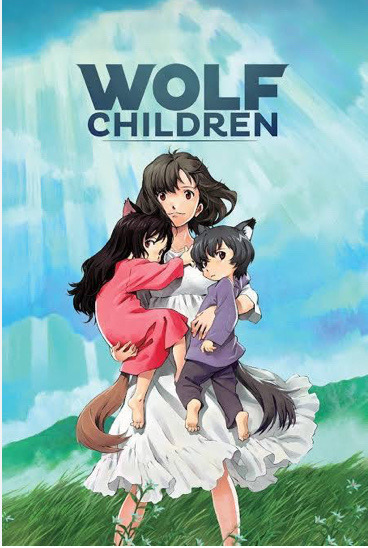
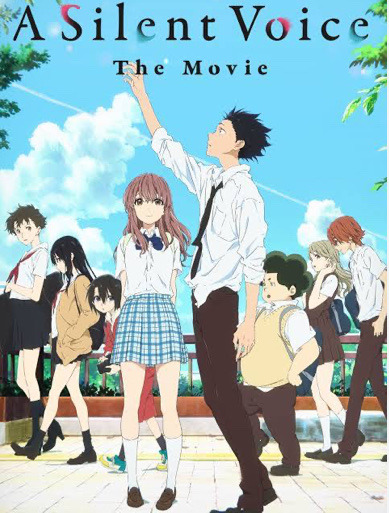
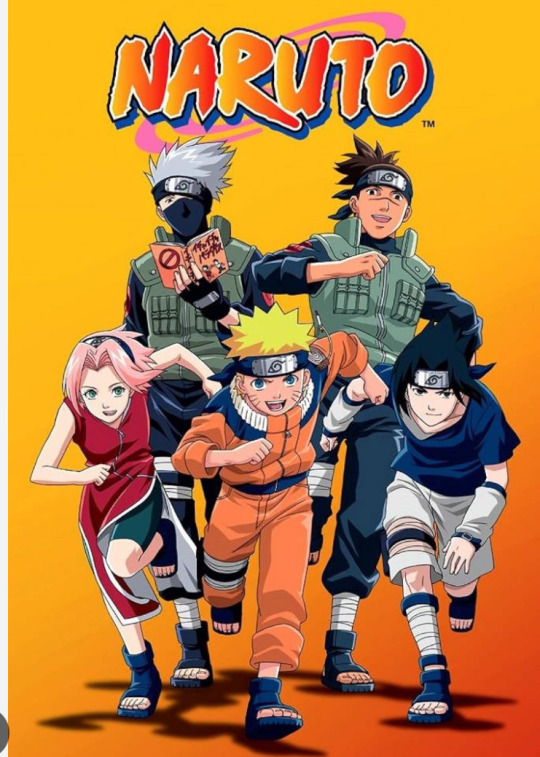
3 notes
·
View notes
Text
I really liked your take on both anime, especially how you tied Wolf Children to your grandmother’s stories about rural Vietnam. That part really stuck with me. I never realized how deep it went like people leaving for city jobs, fields shrinking, and how hard it is for single parents to keep everything together. I’ve seen that kind of struggle in my own family too, and I get what you meant about how the film shows both the beauty and the pain of that kind of life. It’s not just peaceful countryside vibes it’s real work and emotional strength. What you said about A Silent Voice hit home too. The whole “kids being kids” thing is so real. People act like it’s normal, but those moments stick with you for a long time. I remember times where I stayed quiet too just because it felt safer than speaking up. The way the movie shows Shōya trying to make up for what he did made me think a lot about redemption and how people grow. It reminded me how important it is to let people share their story instead of judging them. The way you ended your post, saying that change can start small, really meant a lot. Sometimes it’s easy to feel like nothing we do makes a difference, but small actions just being kind or honest, can actually go a long way. Thanks for being real and sharing such personal thoughts. It honestly made me think about both movies in a different way and reflect on some of my own moments too!
Naruto, Wolf Children, and A Silent Voice
Watching Naruto, Wolf Children, and A Silent Voice back-to-back felt like moving through three stages of growing up in modern Japan—and, by extension, anywhere. Naruto hit me first with its relentless insistence that the wounds of the past don’t disappear until someone chooses empathy over vengeance. As a kid who devoured shōnen shows for the flashy fights, I missed how the series mirrors post-war debates about generational trauma: the village elders cling to old conflicts while Naruto imagines a future where former enemies share a meal. That refusal to inherit hatred resonates in today’s fractious global politics, where cycles of retaliation still feel easier than reconciliation.

Wolf Children then slows everything down. Hana’s decision to raise Ame and Yuki in the countryside reminded me of my own grandmother’s stories about rural Vietnam—fields shrinking, neighbors leaving for city jobs, and mothers doing the emotional labor of holding a family together. Hosoda’s film quietly protests the social structures that make single parents almost invisible. It also suggests an alternative: community built through shared work and patient acceptance of difference. In the readings on furusato (“hometown”) nostalgia, scholars describe rural spaces as repositories of authenticity; Wolf Children both leans into and challenges that romanticism by showing the back-breaking reality of farming alongside its grace.
Finally, A Silent Voice confronted me with the everyday cruelty we excuse as “kids being kids.” Shōya’s journey from bully to ally forced me to revisit moments when I stayed silent in school corridors because joining in felt safer than speaking up. The film’s portrayal of disability and depression pushes against Japan’s—and much of the world’s—tendency to keep mental health struggles private. I kept thinking about Goffman’s writing on stigma from this week’s readings: redemption begins when we allow the stigmatized person to narrate their own story.
Together, these works challenge me to cultivate courage, care, and compassion—whether I’m facing institutional injustice, family responsibilities, or my own past mistakes. They remind me that change starts small: one handshake, one freshly tilled garden row, one apology sincerely given.
2 notes
·
View notes
Text
Shin Sekai Yori
This anime was wild. At first, I thought it was going to be a typical futuristic mystery with a group of friends in school, especially with how it starts off following Saki and her curiosity about why certain kids keep disappearing. But the more I watched, the more it just kept getting darker. It turns out this society that looks calm on the outside is actually built on secrets, fear, and full-on mind control.
What stood out to me the most was how the adults were okay with getting rid of any child who didn’t fit a certain standard. Like if a kid couldn’t control their powers or started questioning things too much, they were just… erased. That’s terrifying. And it wasn’t even just that, they went so far as to genetically modify humans without powers into these “rat” creatures and make them live underground, basically as slaves. That part honestly made my jaw drop.
It reminded me of social Darwinism in a twisted way. The idea of “survival of the fittest” has been used in history to justify awful things, and in this anime, they take it to an extreme. But it’s not really about who’s strongest, it’s about who fits perfectly into the system. If you’re not exactly what they want, you don’t get a second chance. That whole idea reminded me of how people with mental illness or disabilities used to be completely pushed out of society instead of supported. Even though we’ve come a long way, there are still systems today that isolate people who don’t meet certain expectations.
Another thing that really hit me was how they erased memories. The kids didn’t even know what was happening most of the time because their memories were constantly being wiped. It made me think about how we’re influenced by what we’re taught, or what information we’re allowed to have. Just like in the anime, people in real life often don’t realize how much control society has over what we think or believe especially through education, media, or even what’s considered “normal.” This show also had a lot of subtle moments that made me think about how we define identity. The characters’ relationships weren’t overly labeled, and things like love and attraction were just shown as natural. This I give credit to the writing because I was bale to resonate it with more and I’m sure the majority of the audience would agree
Shin Sekai Yori wasn’t what I expected at all, but I think that’s why it stuck with me. It slowly reveals just how far a society will go to maintain control. It made me realize that sometimes “peace” is just a cover for fear and silence. And it also made me think about our own world and how easy it can be to fall into blind trust if we never stop to question what’s really going on.
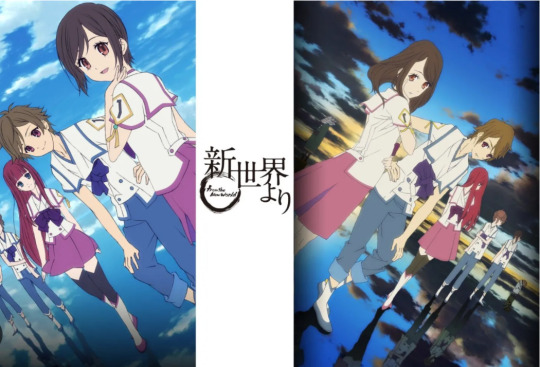
0 notes
Text
Your analysis honestly made me take a step back and rethink what Shin Sekai Yori really left me with. That final question you asked “Is a peaceful society still good if it demands constant sacrifice?” really captures the entirety of the whole show. I agree with you that the way the society maintained peace wasn’t through love or unity but by manipulation, fear, and straight-up erasure. That’s not peace it's control. What really stuck out to me was how they saw everything in extremes. Kids who didn’t meet certain standards were just erased, no second chances. I get that kids with dangerous powers are a threat, but the solution shouldn’t be wiping out anyone who doesn’t fit the mold. It felt like their world had no room for nuance or growth, just black-and-white rules. And I totally agree with your point on memory. It made me think how much of what we “know” about our world is just what we’ve been allowed to know? That hit hard. Also I never thought about it but you are right, the way the show handled sexuality was actually refreshing. It wasn’t labeled or judged, just part of growing up. This anime really stays with you, even after the final episode. Greatjob!!
Watching Shin Sekai Yori felt like being slowly pulled into a dream that turns into a nightmare but one that you can’t stop thinking about even after it’s over. I went in expecting a sci-fi dystopia, but what I got was something way deeper: a haunting meditation on power, memory, identity, and what it means to be human.
What hit me the hardest was how peace in that world is maintained not through kindness or cooperation, but by erasing memories, controlling people from birth, and literally reshaping evolution. It was chilling. It made me think about how much of our own reality is shaped by what we’re allowed to know. How much do we blindly trust in the systems around us, just because that’s how we were raised?
There’s something deeply unsettling about watching kids grow up in a world that lies to them “for their own good.” And yet… it also made me wonder if we do the same in subtler ways. Whether it's in school, media, or even the stories we pass down, what gets left out, and why?
The show’s portrayal of sexuality also stood out to me. It felt natural and unforced, like love was just another part of growing up. No labels, no judgment. Honestly, that felt more progressive than most media I see today.
It’s the kind of anime that doesn’t just entertain it lingers. Even now, I’m still turning over its biggest question in my head: is a peaceful society still good if it demands constant sacrifice? Shin Sekai Yori doesn’t give a clear answer, and maybe that’s the point. It forces you to sit with the discomfort and I think that’s what makes it brilliant.

3 notes
·
View notes
Text
I completely agree with you! Psycho-Pass is a clear warning about how easily society can drift into dangerous territory when we stop thinking for ourselves. The way the Sibyl System reduces people to data is terrifying because it doesn’t just control actions, it controls identity and future potential. Like you, I found Akane’s shift in mindset powerful. Her slow realization that blind loyalty can become dangerous really resonated with me, especially in situations where I’ve felt pressure to just go along with rules without questioning if they’re even right. I also liked how you brought in Foucault’s idea of visibility as a form of control. It makes sense how Psycho-Pass turns emotions and thoughts into something that can be judged and punished. That’s what makes the show feel so relevant now with AI, social media algorithms, and even college systems tracking our every move, it’s like we’re already living in pieces of that world.
Blog Post: Reflections on Psycho-Pass
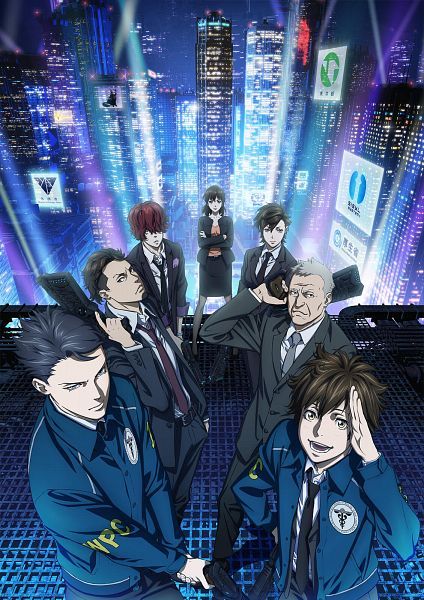
Watching Psycho-Pass felt like stepping into a mirror that reflects both our fears and hopes about the future. Set in a Japan where mental states are quantified by the Sibyl System, it probes the tension between collective security and individual freedom. In Japan, the anime resonates with real concerns about social conformity and the rise of surveillance technology—issues visible not only at home but now emerging globally with smart cities and predictive policing.
What struck me most was Akane Tsunemori’s journey from an optimistic inspector to someone who questions the very system she upholds. Her conflict reminded me of times in my own life when I trusted authority without scrutiny—whether following university policies or peer norms—only to realize that blind compliance can erode our agency. Just like Akane’s gradual empathy for latent criminals, I’ve learned that understanding arises when we look beyond labels, seeing people’s stories instead of statistics.
Connections to our readings on social control were clear. The lecture on Foucault’s Discipline and Punish emphasized how visibility becomes a mechanism of power; Psycho-Pass dramatizes this by turning inner thoughts into data points. I felt that echo in every scene where a Dominator gun locks onto its target purely based on a color code. Yet, the anime also offers glimmers of hope—through Inspector Ginoza’s redemption arc and Kogami’s insistence on personal justice—suggesting that human judgment, imperfect as it is, remains indispensable.
Globally, as we debate privacy versus safety, Psycho-Pass warns us that technology without moral oversight can strip away our humanity. It inspires me to stay critical of systems that promise order but might sacrifice compassion. Ultimately, its most powerful message is that true justice demands both data and dialogue—numbers must never overshadow narratives.
1 note
·
View note
Text
Psycho-Pass
When you watch Psycho-Pass, your initial thought might be that it looks like a utopia. Everything seems so clean, organized, and peaceful. But the more you watch, the more you see how fake it all is. The society is run by the Sybil System, which gives everyone a score based on how “dangerous” their thoughts are. It’s not about what you do, it’s about what’s in your head. That idea alone is terrifying. The people in this world live every day trying to keep their score low. You can’t even feel anger or stress without risking being labeled a threat. It made me realize this isn’t a utopia, it’s a dystopia where people are scared to be human. They have to pretend everything is fine just to survive. Over time, they stop thinking for themselves and just do whatever the system says.
There’s one scene that really hit me. Criminals wearing masks start attacking people in public, and nobody does anything. They just stand there. No one reacts, not because they don’t care, but because Sybil didn’t tell them the attackers were dangerous. That moment honestly freaked me out. These people have become so used to letting a system think for them that they can’t even help each other in an emergency. They’ve forgotten how to use their own judgment.
It made me think about the real world. I feel like we’re slowly heading in the same direction. People don’t think critically anymore. So many people just repeat whatever they see online or follow what influencers and AI tell them to do. Instead of forming their own opinions, they rely on algorithms or trends. It’s like we’re giving up control without even realizing it. That’s exactly what Psycho-Pass warns us about.
The villain, Makishima, proves how broken the system is. He causes chaos, gets people to commit crimes, and still has a “clean” Psycho-Pass. The system doesn’t catch him because he’s calm and confident, even though he’s clearly evil. That shows that no technology, no matter how advanced, can fully understand human nature. You can’t judge someone’s morality by a number. Even the people who work in law enforcement are struggling. Some of them start questioning the system, like Kogami, who basically realizes that following rules doesn’t always mean doing the right thing. It makes you wonder how far people are willing to go just to keep order. When “peace” is forced like this, it’s not real peace it’s just silence and control.
Psycho-Pass connects to global issues too, not just Japan. With governments using facial recognition, predictive policing, and now AI, the idea of being judged before you act is becoming a real concern. This anime is a warning: if we keep handing over our thinking to systems and people with power whether it’s the government, influencers, or AI we’ll forget how to think for ourselves. And once that’s gone, we’re not really free anymore.
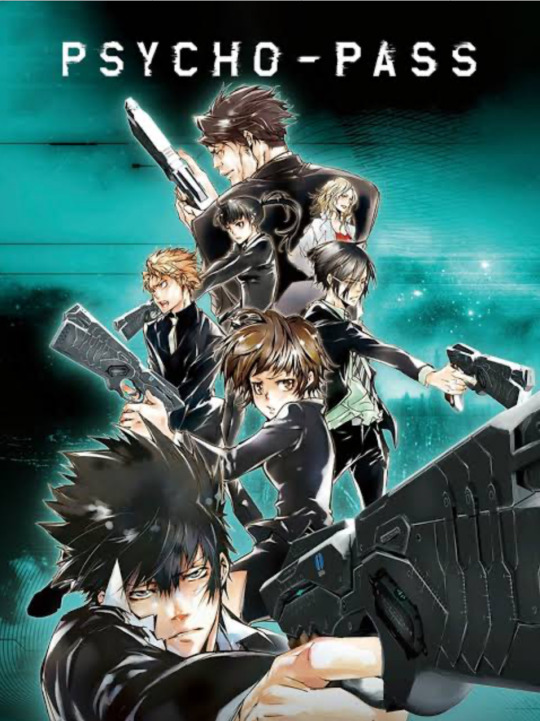
0 notes
Text
Eden of the East and Sword Art Online
These two anime (Eden of the East and Sword Art Online) stand out from the ones we’ve watched before. They both honestly capture what it feels like to be Gen Z in today’s world. We’re a generation that works hard, but many of us are burned out and fed up. Like in Eden of the East, society feels broken, and people expect us to fix it with little to no support. So if you’ve ever experienced the infamous “Gen Z stare,” it’s not necessarily personal… well most of the time. We’re just tired mentally and emotionally.
Eden of the East paints a version of society that, while fictional, feels eerily real. In the anime, twelve individuals are given massive sums of money by a mysterious benefactor and tasked with saving Japan. One of them, Akira Takizawa, becomes a sort of sponsor for the younger generation, specifically NEETs (Not in Education, Employment, or Training). At first, it seems like he’s going to dispose of them, but in the end, he actually uses their potential to rebuild society. That twist really struck me. It reflects our reality, where young people often get written off as lazy, when really, they’re just surviving in a system that’s stacked against them. I see this in my own life. There are two kinds of Gen Z, those who have given up on changing the system, and those who are still trying. Some of my friends never left their high school jobs. They live at home and work just to get by. Their mindset is, “Why bother?” and honestly, I can’t blame them. Things feel so out of reach. Others, like me, are still trying to push through. I’m on a pre-med track, going deep into debt in the hopes that one day I can live comfortably. But even that feels uncertain. The older generations aren’t moving out of the way, and we’re stuck waiting for opportunities that may never come.
Sword Art Online takes this same generational exhaustion and reframes it through escapism. In this story, teenagers get trapped inside a virtual reality game, and many don’t even want to leave. That’s relatable. A lot of young people today feel safer in digital spaces than in real life. The virtual world feels more controllable, more attainable something they can actually succeed in. I live in Clearwater, Florida, a major tourist area where the cost of living is out of control. Unless you bought a house 20 years ago, owning a home here is nearly impossible. I’m just hoping my grandparents leave me theirs. Even with a medical degree, I’ll be buried in debt. My mom, a teacher, earns about $15,000 a year. That’s not a livable wage anymore. So yeah, escaping into a virtual world? I get it. But SAO also reminds us that you can’t live in a fantasy forever. While it’s tempting, it’s not real and staying too long can mess with your sense of reality. If Kirito hadn’t left the game, he would’ve unknowingly ended up with his cousin. That twist alone shows how dangerous it can be to lose yourself in a simulation. As much as I understand the need to escape, there’s still value in returning to real life and facing it, even if it’s hard.
Both anime reflect where Gen Z is right now caught between survival and change, burnout and ambition, escapism and reality. We’re doing what we can, even if it feels like the odds are against us.
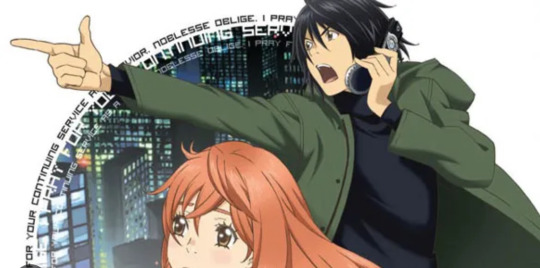
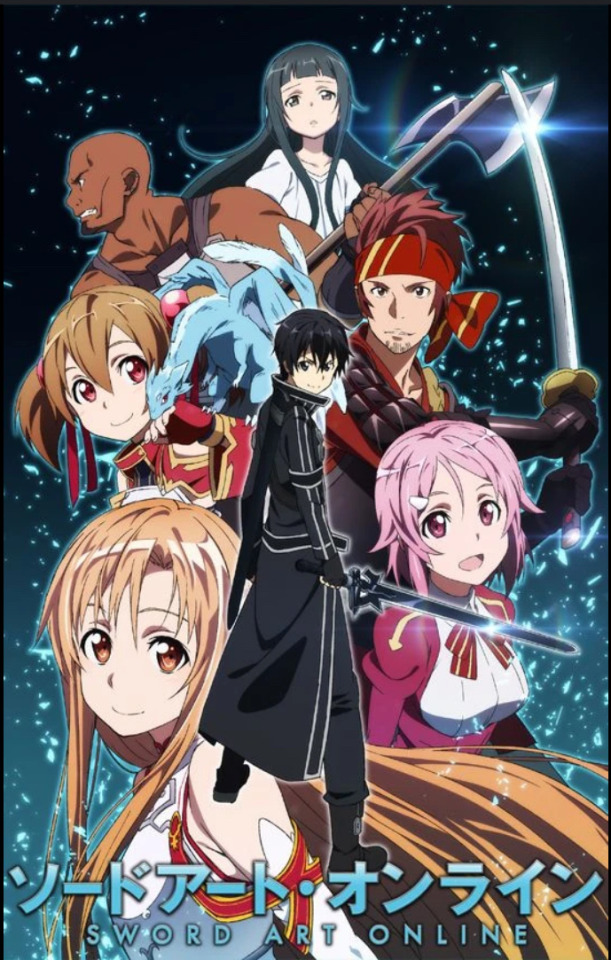
0 notes
Text
Connecting Farenheight 451 to Spirited Away and a Place Farther Than the Universe
When I think about media that pushes back against consumerism and capitalism, Fahrenheit 451 immediately comes to mind. Like the anime Spirited Away and A Place Further Than the Universe, Ray Bradbury’s novel acts as a warning about where society might be headed. It critiques how deeply consumerism can influence and dull our minds, and how dangerous it is to blindly follow a life centered around materialism and control.
In Fahrenheit 451, people are so consumed by media, fast entertainment, and meaningless consumer goods that they stop thinking critically. They no longer care about books, history, or ideas that challenge them. Society becomes so obsessed with maintaining comfort and superficial happiness that individuals lose their identity, independence, and desire for truth. That really stood out to me how a society can become completely numb and distracted through overconsumption. Even though this book was written in the 1950s, I see similar patterns today with how fast social media moves, how trends dominate our choices, and how much pressure there is to keep buying the next “must-have” thing. That same pressure exists in college too whether it’s fashion, tech, or even lifestyle habits. This kind of mindless conformity is also reflected in Spirited Away, where most of the characters fall into routines of greed and excess, losing themselves in the process.
The book’s main character, Guy Montag, eventually wakes up to how meaningless his life has become. He realizes that burning books (his job) is actually helping to destroy knowledge and freedom. His rebellion begins by reading, seeking truth, and pushing back against a system built on ignorance. I respect that part of the story, and I think Bradbury’s message that education and awareness can fight consumerism is a powerful one. That reminds me of how the girls in A Place Further Than the Universe also begin to question what really matters. Even though they’re not in a dystopian world, they face a reality where even their personal journey is shaped by systems that expect them to perform or appeal to an audience. Their resistance isn’t dramatic, but it’s still meaningful.
However, I’m not sure the novel offers a full solution. Montag’s final escape is to leave society entirely and live like a wandering outsider, meeting with others who have also rejected the mainstream world. While that might work symbolically in a novel, in real life it’s not exactly a reasonable or sustainable option. You can’t just walk away from society or capitalism completely. We still need to function within systems, pay bills, have jobs, and engage with the world even if we don’t agree with every part of it.
So while Fahrenheit 451 does offer a critique of capitalism and consumerism, I don’t think it provides a complete alternative. Instead, it leaves us with the idea that the first step is to wake up, educate yourself, think for yourself, and resist being blindly led. That’s a good starting point, but it still leaves us wondering how to realistically live differently within the world we have. In that way, it connects closely with both anime: we can resist, we can reflect, but escaping the system entirely? That’s a lot harder.
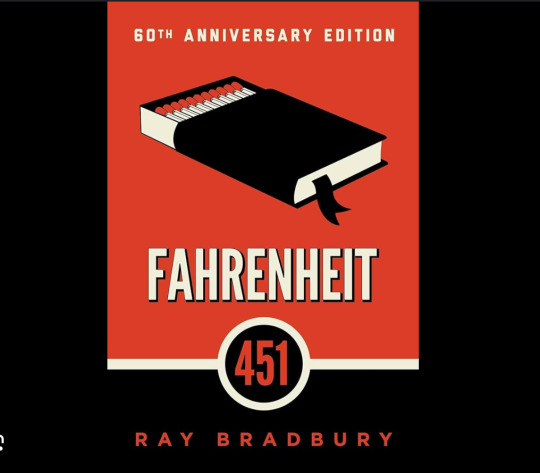
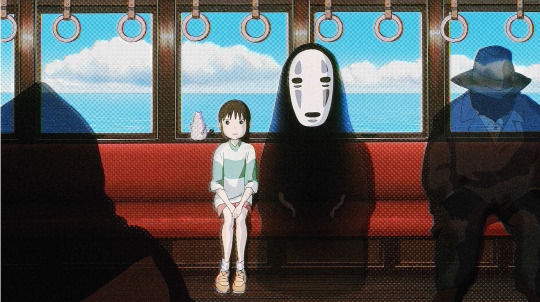
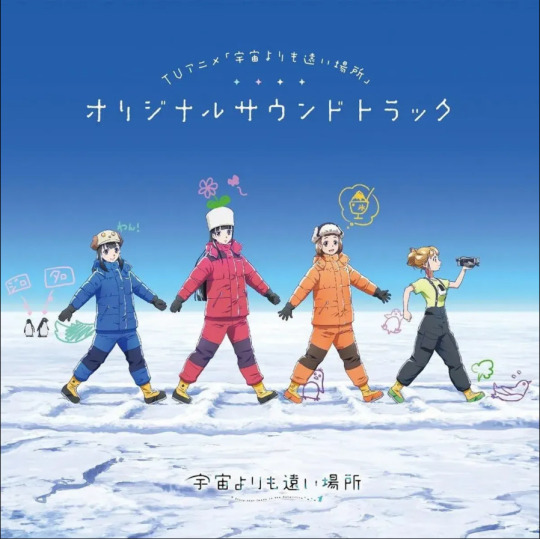
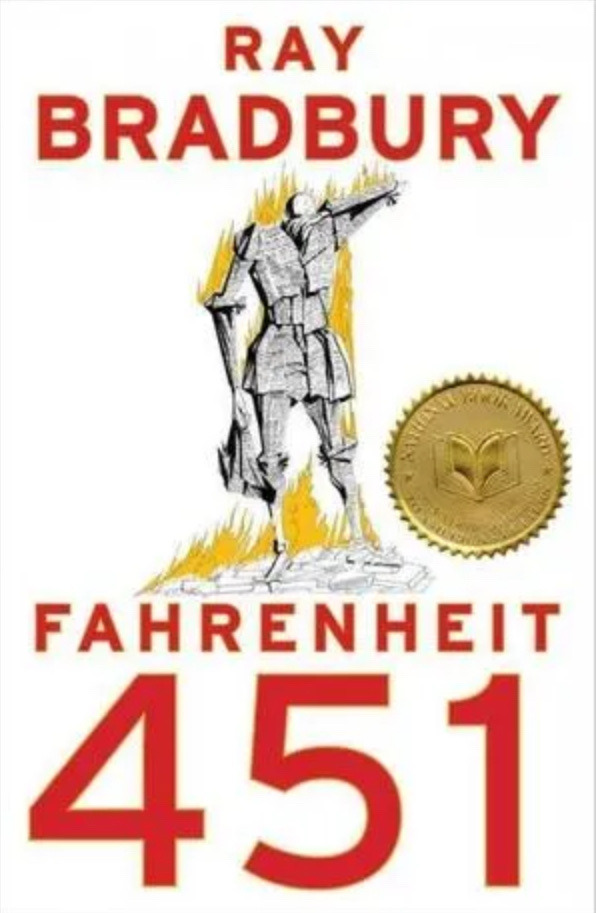
1 note
·
View note
Text
Spirited Away and A Place Further Than the Universe
After watching Spirited Away and A Place Further Than the Universe, I was genuinely impressed by how both anime go beyond simple storytelling and dive into real-world issues that affect us globally and personally. In fact, they reminded me of classic dystopian novels like Fahrenheit 451 and Animal Farm, both of which offer subtle warnings about the direction of society. These anime offer a similar sense of caution, especially when it comes to themes like consumerism, capitalism, and societal pressure.
Spirited Away especially hit me hard with its message about consumerism. Chihiro’s journey through the spirit world mirrors what it feels like to be thrown into a society that expects you to consume without question. Watching her navigate this unfamiliar and overwhelming world made me reflect on how I sometimes feel out of place in a world driven by materialism. College life in particular can make you feel like you constantly have to “keep up” whether that’s with clothes, technology, social media trends, or just the latest lifestyle choices. But like Chihiro, I don’t fit that mold. I prefer my own pace and style, and I find more comfort in individuality than in conforming. I really admired her growth and quiet strength.
A Place Further Than the Universe connects to these themes in a more grounded way. The girls in the story are trying to chase something extraordinary, traveling to Antarctica. But to get there, they need support and funding, which means working with a company to promote their journey. They’re asked to make videos, appear polished, and essentially become a media campaign. Even though they’re doing something incredibly brave and meaningful, they can’t fully escape the influence of capitalism and branding. That really stood out to me. It shows how even our most sincere dreams can get pulled into systems that prioritize image and marketability. I personally related to this on a deeper level. In a past job, I was told that I was being hired not only for my qualifications, but also because I was considered a “pretty face” who could help attract people. It made me uncomfortable, but I stayed because I needed the money and wanted the experience. That moment taught me that sometimes, just like the girls in the anime, we end up playing the game because the system doesn’t leave us many choices. That doesn’t mean we’re not strong, it just shows how difficult it can be to succeed while staying true to yourself.
Both anime taught me that it’s okay to question the systems we live in, and it’s even more important to hold onto who you are through it all. Whether it’s in a fantasy world or the real one, the pressure to conform is real but, so is the power of staying grounded in your own identity.
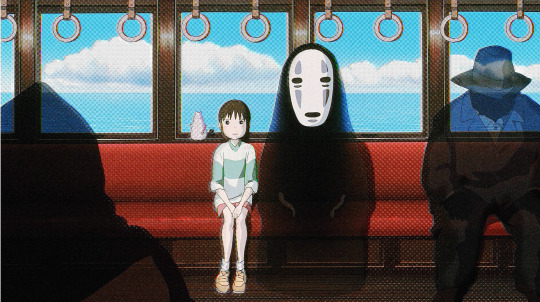
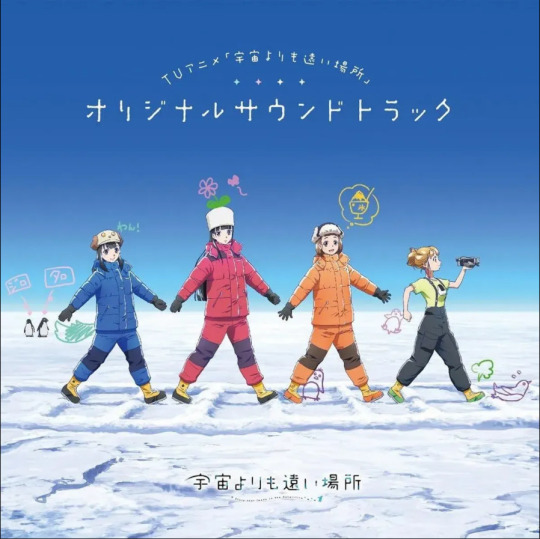
3 notes
·
View notes